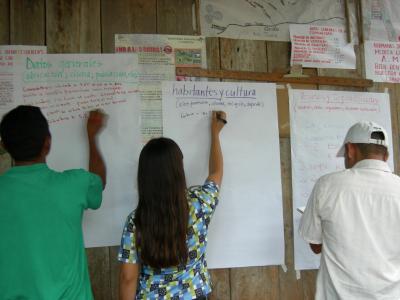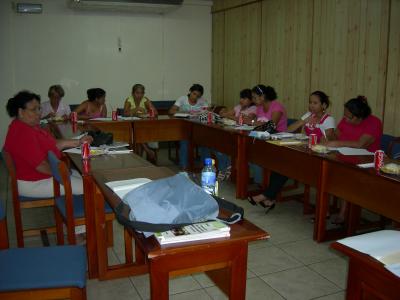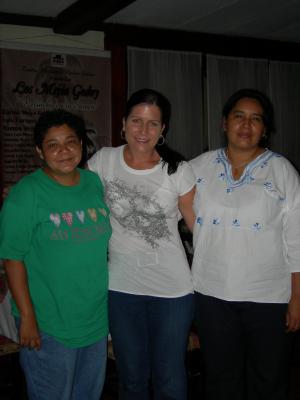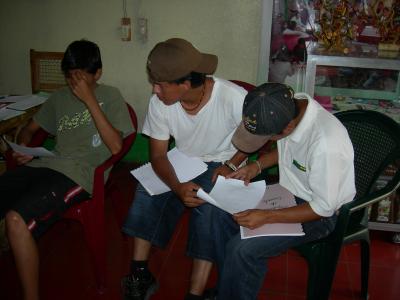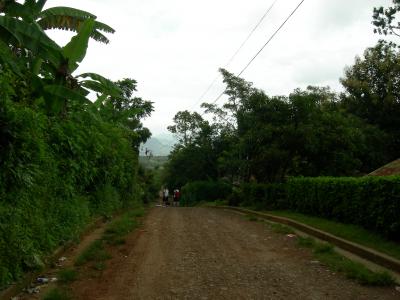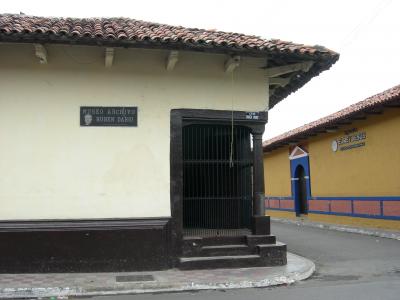just a quick glimpse at my life here in La Dalia, where I am working with an NGO, Acción Médica Cristiana (AMC) and doing fieldwork as part of my research:
food - today my meals were generously provided by Mariana, the neighbor next door to the AMC office. the office also serves as my hospedaje/place to stay while i´m here. as a side note, people usually think it´s wierd i´m a vegetarian, and i kinda do too out here where chickens, pigs, and cows roam patios and streets and are precious sources of protein, but anyway 23 years as a veg is a very long time... so i explain i don´t eat meat (no, not pollo or mariscos either!), and people just nod and think it´s wierd. Mariana made me lunch of a soup of boiled cabbage, red beans, and potatoes (yum!), and knocked on the office door and surprised me with a cena of a bowl of platanos maduros (fried plantains) and gallo pinto (don´t know what that is? spend a day in nicaragua and you might have it for breakfast, lunch, and dinner, i´m not kidding! beans and rice, fried together). ok, that´s food pretty typically plus or minus a banano, tajada, maduro, tostones or two (bananas in all their wonderful incarnations), here in La Dalia.
heat - it´s hot. it´s not raining enough. people are worried about the harvest. deforestation is a problem. it´s hot. mornings and evenings are very nice and temperate, but the afternoon sun blares and basically people just sweat it out, spending as much time as possible in the shade, wherever they can find it.
bathing - this is a real adventure of sorts. out back of the office is a cement water receptacle pit type thing, where water comes in via an open spigot those few hours a day water is actually running in town. i stand in the cement/mud, shivering, as i pour hand-held bucket after bucket over my head. whoo ha!
letrine - not one of life´s pleasures here, to be sure. let´s just not describe the smell, nor the need to run from my mosquito-net covered bed through the coffee plants out back up the hill in the mud in the middle of the night... you get the idea... so i definitely view toilets with seats as a right not a priveledge, but i´ll leave that for another post...
music - so the sensory experience here is not complete without a quick description of the reggaeton music blaring at all hours from every house, storefront, taxi, bus, cellphone. i´m serious. the only thing that even comes close to competing in the auditory airwaves is evangelical christian music, shouted loudly usually via microphone (and off-key) each night from the many small churches all over, or the guitar-accompanied catholic folk tunes earnestly sung in churches and homes here in town.
despite these various (dis)comforts, i´m happy here in an odd way. it´s nice to come back to work in a place, to feel a sense of history with this community, people´s generousity and warmth is incredibly humbling, not to mention the appreciation i have for my friends and colleagues at AMC, who have received me with wide-open arms (and hearts). i feel an enormous amount of gratitude combined with a sense of humility that motivate me to continue my work with AMC and in the community here in the coming months...
paz y amor, kristin
